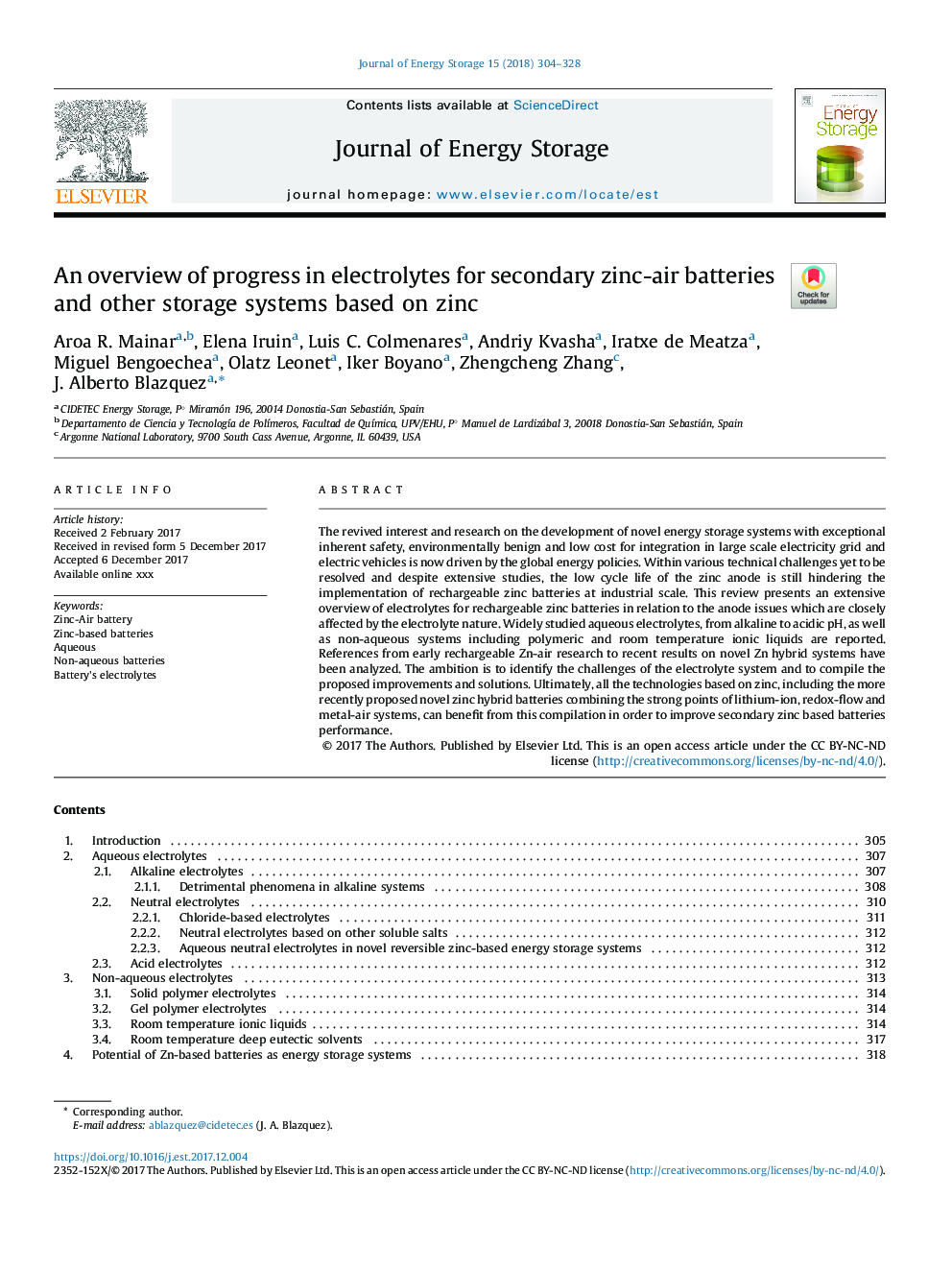| Article ID | Journal | Published Year | Pages | File Type |
|---|---|---|---|---|
| 7540237 | Journal of Energy Storage | 2018 | 25 Pages |
Abstract
The revived interest and research on the development of novel energy storage systems with exceptional inherent safety, environmentally benign and low cost for integration in large scale electricity grid and electric vehicles is now driven by the global energy policies. Within various technical challenges yet to be resolved and despite extensive studies, the low cycle life of the zinc anode is still hindering the implementation of rechargeable zinc batteries at industrial scale. This review presents an extensive overview of electrolytes for rechargeable zinc batteries in relation to the anode issues which are closely affected by the electrolyte nature. Widely studied aqueous electrolytes, from alkaline to acidic pH, as well as non-aqueous systems including polymeric and room temperature ionic liquids are reported. References from early rechargeable Zn-air research to recent results on novel Zn hybrid systems have been analyzed. The ambition is to identify the challenges of the electrolyte system and to compile the proposed improvements and solutions. Ultimately, all the technologies based on zinc, including the more recently proposed novel zinc hybrid batteries combining the strong points of lithium-ion, redox-flow and metal-air systems, can benefit from this compilation in order to improve secondary zinc based batteries performance.
Keywords
Related Topics
Physical Sciences and Engineering
Energy
Energy (General)
Authors
Aroa R. Mainar, Elena Iruin, Luis C. Colmenares, Andriy Kvasha, Iratxe de Meatza, Miguel Bengoechea, Olatz Leonet, Iker Boyano, Zhengcheng Zhang, J. Alberto Blazquez,
